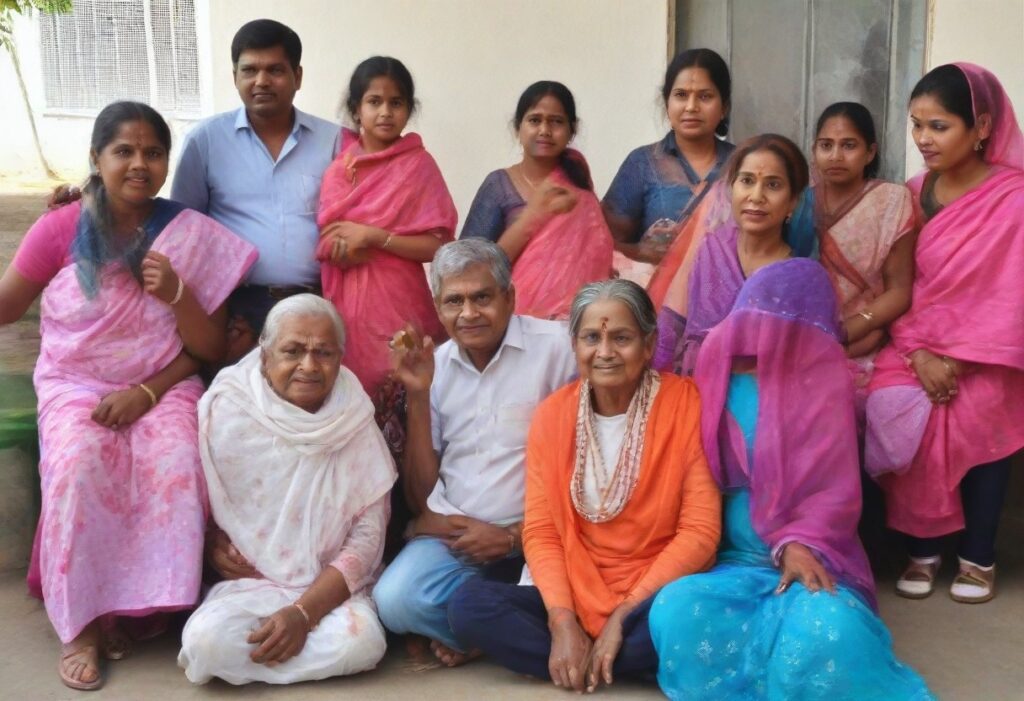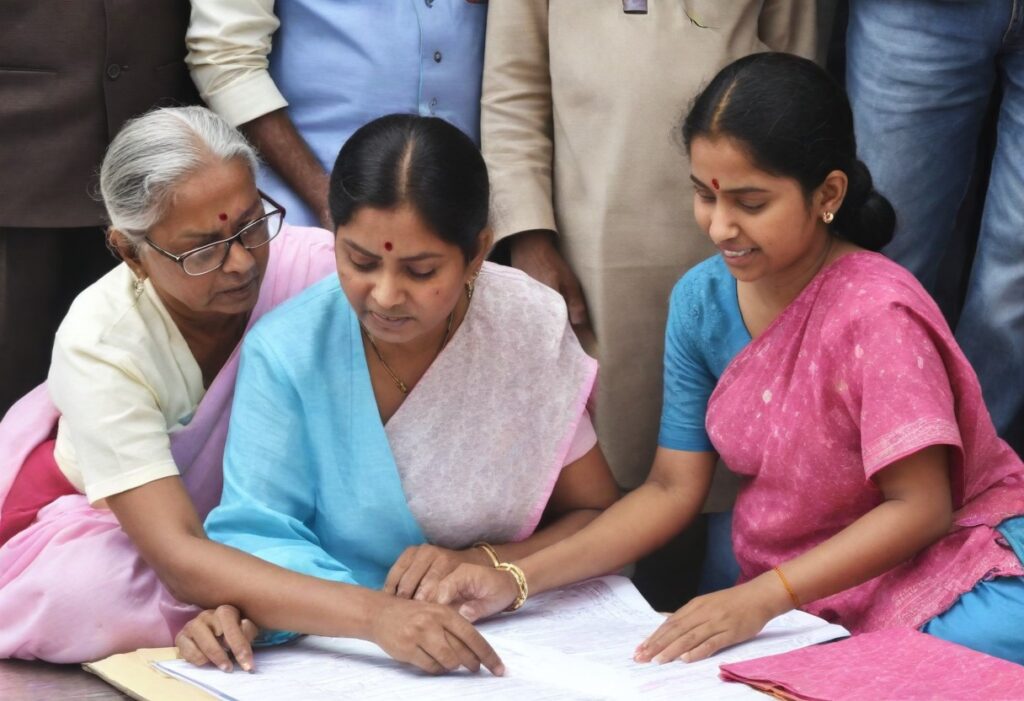
Established in 1976, the Nari Niketans Yojana in Jammu & Kashmir offers safe haven, support, and rehabilitation opportunities for deserted, widowed, and destitute women. Learn more about this initiative and how it empowers women.
The Nari Niketans Yojana is a government-run program implemented in 1976 by the Social Welfare Department of Jammu & Kashmir. This initiative caters to a specific and vulnerable section of society – women who are widowed, deserted, or destitute and have no means of livelihood.
Nari Niketan translates to “Women’s Abode,” aptly reflecting the scheme’s objective of providing safe shelter, food, clothing, and basic necessities to these women. It goes beyond just physical well-being, aiming for holistic rehabilitation by offering opportunities for education, skill development, and eventual reintegration into society.
What are the Key Features of the Nari Niketans Yojana?
- Eligibility: The program is open to women residing permanently in Jammu & Kashmir who are widowed, deserted, or facing destitution with no means of support.
- Facilities Provided: Nari Niketans offer free boarding and lodging, meals, clothing, and medical care. Additionally, school-going children accompanying mothers can receive education within the facilities.
- Focus on Empowerment: The program emphasizes skilling and training to equip women with income-generating abilities. This could include vocational training in tailoring, embroidery, handicrafts, or other marketable skills.
- Rehabilitation and Reintegration: Nari Niketans aim to empower women to become self-sufficient. The program facilitates their return to society through options like remarriage, employment opportunities, or self-employment ventures.
- Locations: Currently, there are seven Nari Niketan centers operational across Jammu & Kashmir: Jammu, Udhampur, Kathua, Doda, Rajouri, and two centers in Poonch, with a total capacity of 280 women.
Benefits of the Nari Niketans Yojana
The Nari Niketans Yojana offers a lifeline to vulnerable women in Jammu & Kashmir. Here are some key benefits:
- Safe Haven: Provides a secure environment away from potential exploitation or abuse.
- Basic Needs Met: Ensures access to food, shelter, clothing, and medical care.
- Empowerment Through Skills: Equips women with vocational skills to achieve financial independence.
- Rehabilitation and Reintegration: Offers support for a smooth transition back into society.
- Reduced Social Burden: Lightens the burden on families and communities struggling to support these women.
Eligibility
- The candidate must be an Indian citizen.
- The candidate must be a citizen of the state of Jammu & Kashmir and a permanent resident.
- The candidate ought to be a woman.
- The candidate must be a widow, destitute, or abandoned.
- The candidate shouldn’t be able to support himself.
- The children who come with their moms will also be allowed entry, with the understanding that male children will be moved to Bal Ashrams once they turn eight years old.
How to Apply for the Nari Niketans Yojana

The application process for Nari Niketans is relatively straightforward. Here’s what a woman or someone on her behalf needs to do:
- Contact the District Social Welfare Officer (DSWO): The DSWO plays a crucial role in facilitating applications. They will guide the applicant through the process and provide the necessary forms.
- Documentation: The application requires documents like proof of residence, identity proof, and documents supporting the woman’s specific situation (widow certificate, desertion proof, etc.).
- Screening and Approval: The DSWO will review the application and supporting documents. Once approved, the woman can be admitted to the nearest Nari Niketan center.
Documents Required
- 3 Passport-Sized Photos (Signed Horizontally).
- The State/UT of Jammu & Kashmir’s Residential Certificate or Domicile Certificate.
- Evidence of one’s identity.
- The Adhaar Card.
- Husband’s Death Certificate (if the applicant is a widow).
- Information on the bank account of the guardian or the self, including the bank name, branch name, address, and IFSC.
- whatever further paperwork that the District Social Welfare Office requests.
- Evidence of the child’s age (birth certificate) (if the child is traveling with the mother).
Challenges and Future Considerations
While the Nari Niketans Yojana plays a vital role in supporting women in need, there are some challenges to consider:
- Limited Capacity: With a total capacity of 280 women, the program might not meet the entire demand in the state. Increasing the number of centers and expanding capacity could be an option.
- Long-Term Stay: While the program encourages reintegration, some women might require extended stays. Addressing their specific needs and providing long-term support could be explored.
- Mental Health Support: Many women entering Nari Niketans might have experienced trauma. Integrating mental health services could be beneficial.
Conclusion: A Beacon of Hope and Empowerment
The Nari Niketans Yojana stands as a testament to the government’s commitment to social welfare in Jammu & Kashmir. By offering a safe haven, essential support, and opportunities for growth, the program empowers women to rebuild their lives. The emphasis on skill development fosters self-sufficiency and dignity, allowing women to contribute to society and break free from the cycle of vulnerability.
Looking ahead, continuous efforts to expand the program’s reach, address capacity limitations, and integrate mental health services can further strengthen its impact. By ensuring a holistic approach to rehabilitation, Nari Niketans can continue to be a beacon of hope and a catalyst for a brighter future for women in Jammu & Kashmir.
Additional Considerations
- Success Stories: Highlighting success stories of women who have benefitted from the program’s skilling initiatives and reintegrated into society can be a powerful tool for promoting the Yojana and inspiring others.
- Public-Private Partnerships: Exploring partnerships with NGOs and private organizations could potentially expand resources and expertise available to Nari Niketans for enhanced services and wider outreach.
- Community Awareness: Raising awareness about the program within communities can encourage women in difficult situations to seek help and avail themselves of the support offered by Nari Niketans.
By implementing these considerations, the Nari Niketans Yojana can continue to play a vital role in empowering women and fostering a more inclusive society in Jammu & Kashmir.
Sources And References
Read More: Indira Gandhi National Widow Pension Scheme
